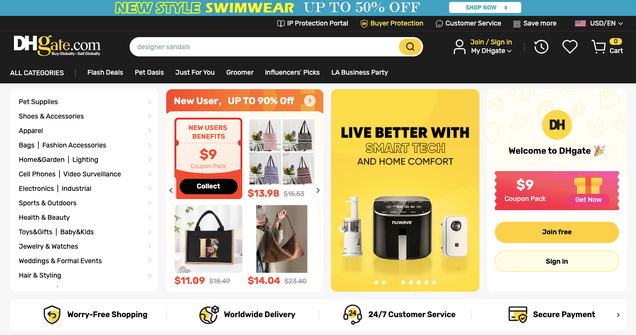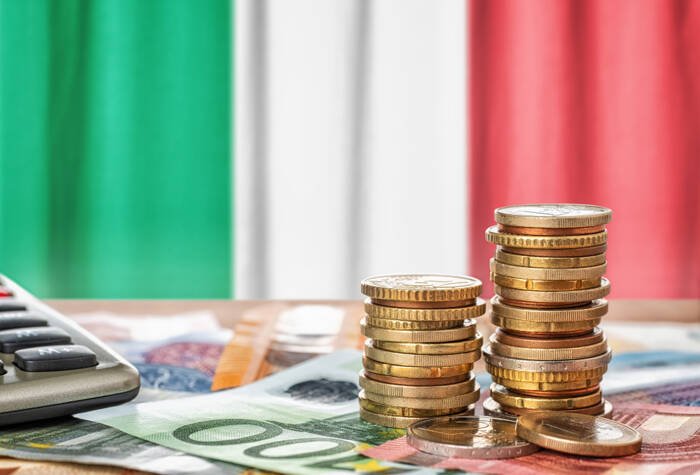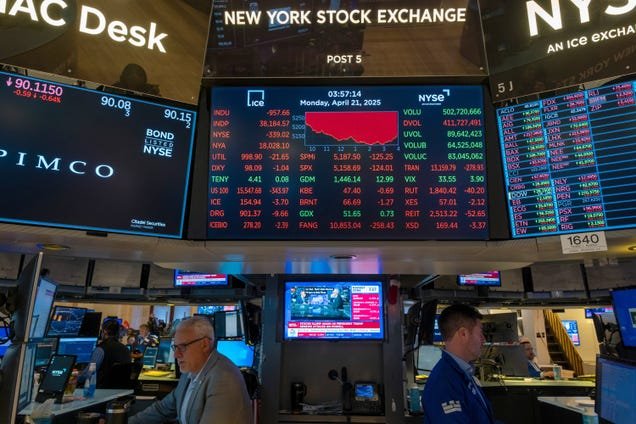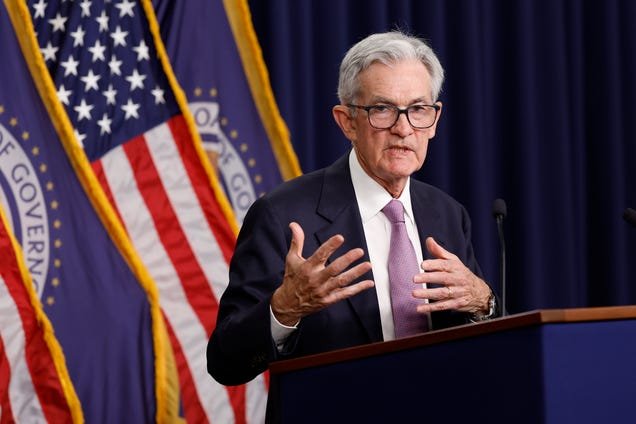In This Story
Hermès handbags and Lululemon (LULU-0.23%) yoga pants — but for a fraction of the price? Savvy U.S. shoppers looking for workarounds for tariff hikes have turned their attention directly to China, where they’re being introduced to alternative markets.
Suggested Reading
How Trump’s tariffs could make your iPhone cost $3,500
Suggested Reading
In response to President Donald Trump’s hefty tariffs on China (currently 145%), Chinese sellers have flooded social media with videos of themselves highlighting the high quality and cheap prices of goods available on Chinese services. Chinese shopping apps DHgate, a wholesale marketplace known for selling dupes and unbranded versions of luxury items, and Taobao (BABA+6.81%), the country’s original e-commerce site, have shot toward the top of the U.S. Apple app store as a result.
As of midday Thursday, DHgate ranked second on the “free apps” chart, while Taobao ranked fifth.
Chinese sellers are claiming to be behind luxury brands
On Wednesday, a trending topic on TikTok was “China ‘exposes’ luxury brands,” and such videos have continued to rack up views as U.S. consumers consider what the current trade war means for them — and their closets.
One such viral video showed a man who called himself Wang Sen (his account is Senbags) standing in front of what looked like a wall of Hermès’ Birkin bags — he claimed to be the original manufacturer of luxury goods. “Why don’t you just contact us and buy from us?” he said in a video later deleted by the app. “You won’t believe the prices we give you.”
Birkin bags are actually made in France, and the cheapest of the styles from the French company sell for $8,500. Buying a new Birkin requires an established relationship with a sales associate at a boutique and a demonstrated history of purchasing Hermès products. So, it’s easy to see why some buyers might turn toward dupes.
“Sen” claimed to be the largest original equipment manufacturer (OEM) of luxury bags and said more than 80% of luxury bags are made in China — an unsubstantiated number that doesn’t ring true. Additionally, most manufacturers must sign nondisclosure agreements with the companies they work with. The supply chain for luxury products can get complicated, with parts being sourced from all over the world. Still, experts said that the claims being made in this type of viral video were likely false.
Regardless, “Sen” said his bags could match the quality of those sold by Western luxury brands.
TikTok user LunaSourcingChina frequently posts videos where she talks about the Chinese suppliers behind brands such as Sephora (LVMUY-6.39%) and Zara. Recently, she addressed how businesses in China will address Trump’s tariffs. “Factories won’t absorb the losses,” she said. “They are not in the business of losing money, and importers won’t take the hit, either; they’ll just pass the costs down the supply chain.”
She touted two Chinese factories she said were where Lululemon sources its $98 leggings, claiming here, “you can get them for around five to six bucks.” Lululemon quickly hit back at the claims, saying it “does not work with the manufacturers identified in the online videos” and urged consumers to “be aware of potentially counterfeit products and misinformation.”
Other TikTok users are helping U.S. shoppers bypass tariffs
Another TikTok user, Gonest_lily, who claims to be a Chinese freight-forwarding agent, has been posting videos on how to get Chinese goods into the U.S. without paying the recently imposed high tariff fee. She claimed to have a “safer and more legal method” of getting goods from China into the U.S. — “not smuggling,” she said, but personal shopping services.
“You can travel to China, act as an agent to purchase product for your American friends and clients, and then avoid the tariff by declaring them as ‘personal items’ when you return to the U.S., thus earning you a high profit margin,” she said in a video that has racked up over 1.2 million views. Another video explaining the “easiest way to ship goods from China to the U.S.” has over 1.7 million views.
In a video from almost a week ago, she talked about how to use Chinese online stores in a video titled “Shein is Over… Here’s What They Don’t Want You to Know” that has been seen over 11 million times. Her “hack” comes as Shein and Temu (PDD+5.47%) announced price hikes as a result of the tariffs — beginning April 25, 2025.
DHgate’s plan to win big amid Trump’s tariffs
Meanwhile, DHgate looks to profit. On pages where customers can add an item to their shopping cart, the company has a note saying the item has “no tariff” and is “delivery and price safe.”
Last week, it issued a letter to merchants about its “Tariff Escort Plan,” pledging to provide traffic, subsidies, logistics, and other support for merchants to help them reduce cost pressure and stabilize sales. The platform claims to host more than 2.6 million suppliers that produce an average of over 30 million products a year. According to Bloomberg, the company covers over 200 countries and regions, owns more than 10 overseas warehouses, and provides over 100 logistic routes.
oOne trending TikTok video promoting the site said, “You do not need to play the Hermes game for the exact same thing. Save your money and get your Birkins and Mini Kellys just in time for summer 2025.”











